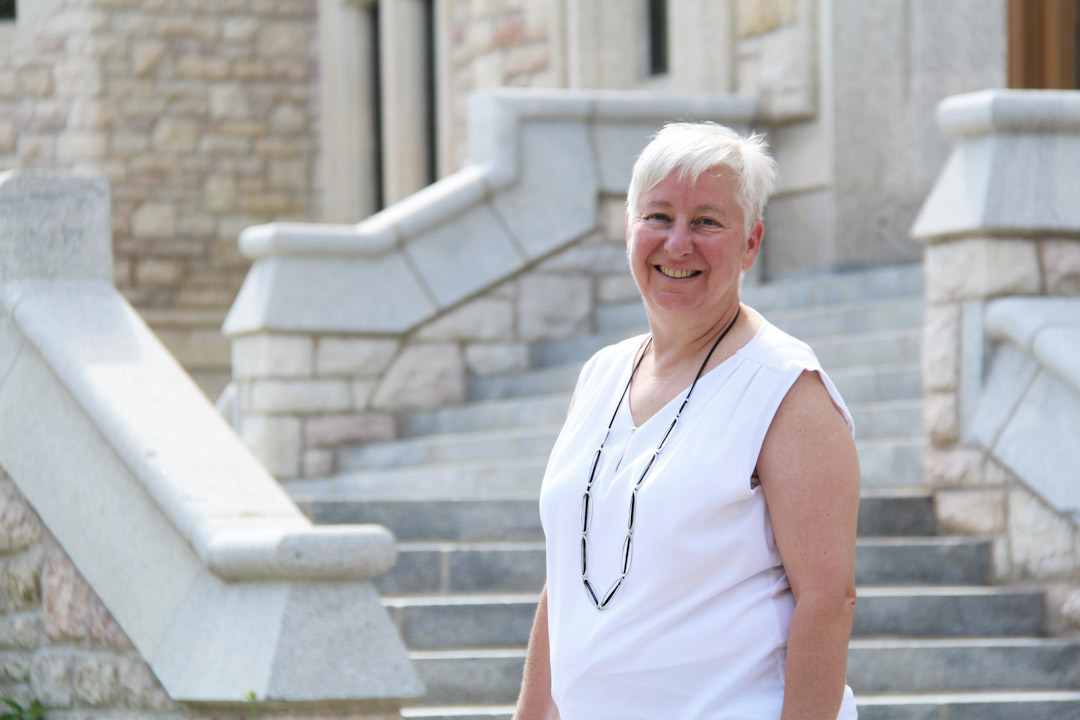
USask medical researchers awarded $900K to help fight COVID-19
SASKATOON – The Canadian Institutes of Health Research (CIHR) has awarded three University of Saskatchewan (USask) research teams a total of $900,000 to help strengthen Canada’s rapid response to the COVID-19 pandemic which had killed more than 450,000 people worldwide.
By USask Research Profile and ImpactLed by USask College of Medicine researchers, the projects will investigate the re-purposing of currently approved drugs to treat COVID-19 patients, evaluate some highly promising therapeutics against COVID-19, and help prepare for future outbreaks by gathering information on the best interventions public health officers have developed across the country.
“Our outstanding researchers in areas of medicine, vaccine development and public health are on the front lines of helping to prevent, treat and manage this global pandemic,” said USask Vice-President Research Karen Chad. “Working with our partners nationally and internationally, we are helping to provide a rapid response to this immense global challenge.”
Rapidly identifying antiviral drugs: $449,000
A team led by virologist Dr. Joyce Wilson aims to identify existing drugs, such as those used to treat cancer or other diseases, that can be repurposed to treat COVID-19 infections.
Her team includes genetics expert and research scientist Franco Vizeacoumar and co-applicant Darryl Falzarano, a research scientist at the USask Vaccine and Infectious Disease Organization-International Vaccine Centre (VIDO-InterVac). Falzarano was the first in Canada to grow SARS-CoV-2—the coronavirus responsible for COVID-19—to pursue development of a vaccine.
“Only two of us are virologists, and only one is a coronavirus expert, but it’s exciting that we can pool our combined expertise to rapidly identify antiviral drugs,” said Wilson.
The team will begin by using genomic tools to identify specific host factors—such as genetic traits in humans—that enable SARS-CoV-2 to infect people.
The virus needs to hijack host proteins to reproduce, and some of them are also involved in other human diseases such as cancer, said Wilson. “So it’s likely that current therapeutics designed to treat such diseases also inhibit SARS-CoV-2.”
The team hopes to identify within the next seven months the critical pathways SARS-CoV-2 needs to thrive, and develop a rapid drug screening tool by January.
“Then we will buy and screen an array of therapeutic drugs that target the virus. Since the therapeutics we identify may have already been approved for human use, it will speed up their progression to clinical testing in COVID-19 patients,” she said.
The goal is to identify SARS-CoV-2 inhibitors by June of 2021.
Rapidly testing COVID-19 drug treatments: $267,250
Viral immunologist Kerry Lavender and co-applicant Darryl Falzarano at VIDO-InterVac will undertake a national and international collaborative project to produce and use a sophisticated “humanized mouse” model to rapidly evaluate some highly promising therapeutics against COVID-19.
“Canadians can feel very proud that we are able as a country to make this level of contribution to the global effort against COVID-19,” said Lavender.
Lavender’s lab is one of a handful worldwide with the expertise, capacity and authorization to rapidly produce and use BLT-L mice for the study of respiratory pathogens. Each mouse contains two human lung implants that can be infected by SARS-CoV-2 and a human immune system that will mount an immune response to the infection.
Falzarano’s lab will perform the SARS-CoV-2 infections and treat the mice with the therapeutics, starting in the next couple of months. Tissue samples from mice will be evaluated to determine if the drugs reduce the level of COVID-19 infection and associated lung damage.
A Canadian biopharmaceutical partner will provide a drug that is currently in Phase II development for treating hepatitis B and D infections. Limited human compassionate use data on the drug demonstrates good safety and potential use in treating COVID-19. In addition, Dennis Burton at the American research facility Scripps Research has isolated fully human antibodies and identified some approved drugs that have shown anti- SARS-CoV-2 activity in in vitro trials. The collaborators will decide on proceeding to clinical trials with drugs identified by the USask team.
Tracking the impact of public health measures on COVID-19: $180,600 from CIHR, plus $50,000 from the Saskatchewan Health Research Foundation
Community health and epidemiology professor Dr. Cory Neudorf and his team will collect and analyze community safety policies and programs adopted by medical health officers at 200 local health units across Canada in response to COVID-19. The goal is to recommend best practices for responses to future waves of COVID-19 or other pandemics.
“To capture front-line perspectives on COVID-19 responses, the intended and unintended consequences of the interventions, and local COVID-19 disease trends from public health staff themselves, we will leverage our longstanding relationships with the Urban Public Health Network, the Public Health Physicians of Canada, and the Rural, Remote and Northern Public Health Network,” said Neudorf.
Neudorf’s team will be the first in the world to track public health responses to an active pandemic using a new tool the World Health Organization is developing for standardized reporting and analysis of health interventions.
Thilina Bandara, adjunct professor in community health and epidemiology, and USask researcher Charles Plante, Houston Family Research Fellow at the Johnson Shoyama Graduate School of Public Policy, are also principal applicants on the project, while USask researchers Maureen Anderson and Oluwafemi Oluwole are co-applicants. Researchers at McGill University, Dalhousie University, and University of Calgary will also be involved.
-30-
For more information, contact:
Victoria Dinh
USask Media Relations
306-966-5487
victoria.dinh@usask.ca

